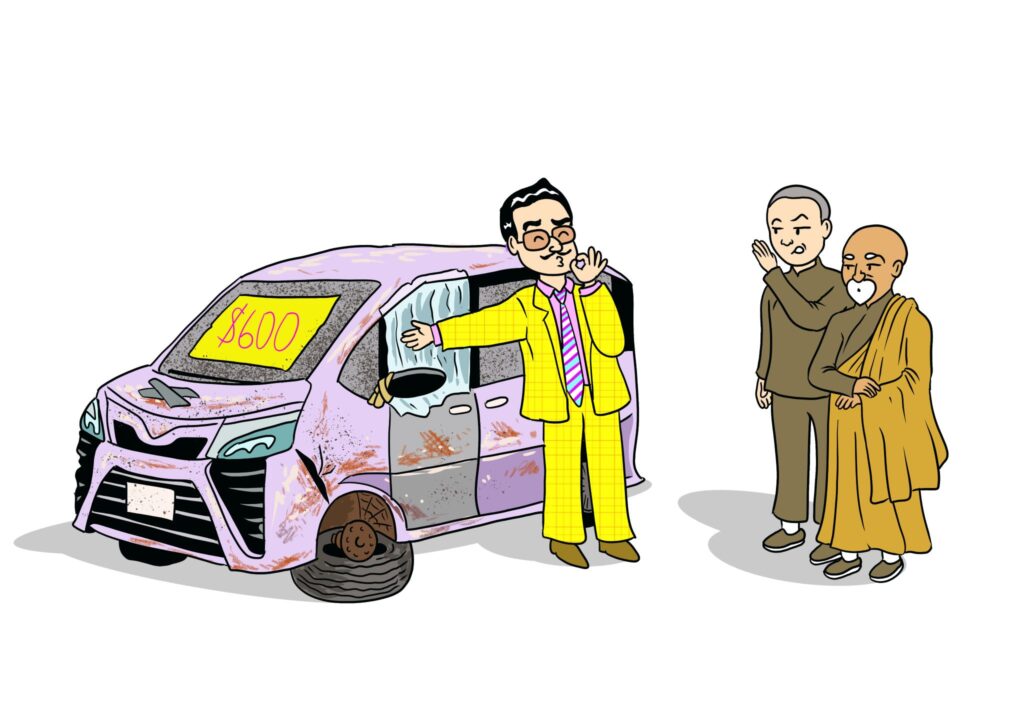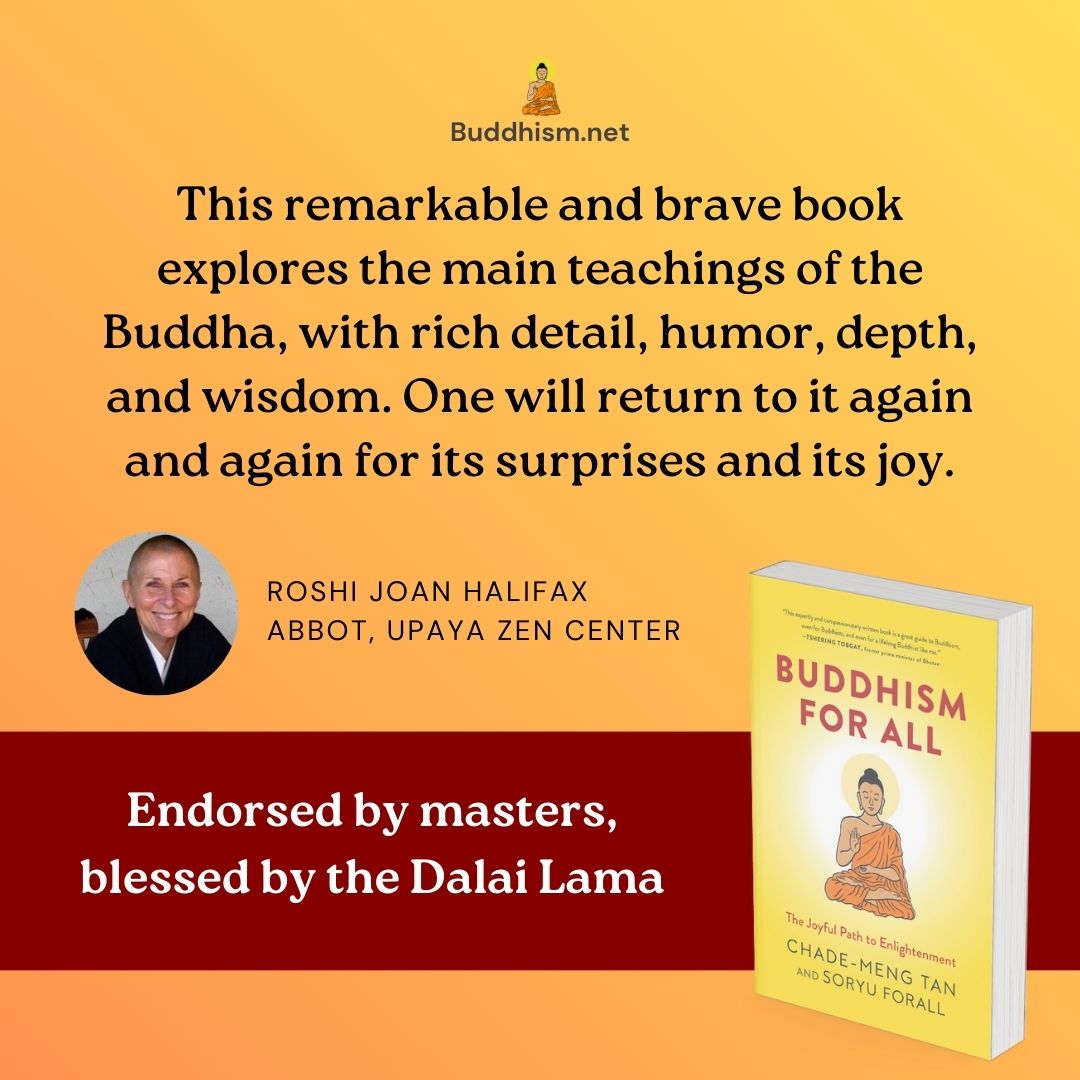
“Master, this car is dukkha.”
The lesson from the story of Emperor Qianlong and countless others with lucky human births is clear, that no matter how lucky our birth is, we are all still subject to the same suffering: aging, illness, death, separation, not getting what we want, and getting what we don’t want. The great Egyptian Pharaoh Ramses II, for example, another absolute ruler of great wealth, renown and power, was known to have died suffering severe gingivitis and serious tooth decay, which means he probably suffered enormous pain in his final years.
That was how the Buddha started with his prescription for suffering: by first making a statement on suffering. The Buddha continued on with his first discourse (continuing from this post),
Now monks, this is the truth of dukkha: birth is dukkha, aging is dukkha, illness is dukkha, death is dukkha. To be with what you do not want is dukkha. To be separated from what you want is dukkha. To not get what you want is dukkha. In brief, the five aggregates subject to grasping are dukkha.
This statement about dukkha is known in Buddhism as the First Noble Truth.
Okay, but what is dukkha?
The most common English translation of dukkha is “suffering.” However, dukkha is significantly broader than suffering. When we say suffering, we usually mean one or both of two things:
- The experience of physical or emotional pain
- The experience of aversion in reaction to physical or emotional pain
Note that pain does not necessarily have to be caused by the presence of stimuli, it can also be caused by the absence of stimuli. For example, if you desperately crave for something or someone, their absence can be a cause of emotional pain.
While dukkha definitely includes suffering, it also includes a general sense of unsatisfactoriness and imperfection in life. Traditionally, the word dukkha is explained as an imperfection in the axle hole of a wheel.[1] If a carriage has a wheel with an axle hole that is not properly centered nor aligned in some way, you don’t get a smooth ride. That is dukkha. It is not that the wheel is broken, it is just unsatisfactory. It is for this reason that dukkha is also often translated as “unsatisfactoriness.” One funny story that is obviously apocryphal but helped me remember: the Buddha was walking with his attendant Ānanda along an Indian highway where horse-drawn carts were going back and forth. One particular cart had an improperly aligned wheel, so the driver was obviously not having a particularly good time. Buddha pointed to that cart and said, “See, Ānanda, that is dukkha.” American Buddhist teacher Leigh Brasington half-jokingly suggested translating dukkha to “bummer”.[2]
An alternative but complementary etymology of dukkha comes from a Sanskrit word it is very closely related to: duḥstha. Duḥstha is a compound of dus– (bad) and stha (to stand), so it literally means “does not stand well” or “unstable”. This relates to an alternative imagery of dukkha as a potter wheel that is unstable. If you are a potter in ancient India working on large pots with a potter wheel that is unstable, you are not going to have a particularly good time either. Bummer.
Dukkha is not just about suffering in the present, it also considers suffering in the future. For example, if you have a great, healthy body, someday, you will either get sick or get old, and you will no longer have a great body. If you have someone you love, someday, either they will change (and/or you will change) and you may fall out of love, or you will be separated because either one of you will die. And if everything in your life is just absolutely perfect (you are rich, powerful, healthy, good-looking, and have the perfect family and career), someday, something will change, and/or you will die. That is included in dukkha as well.
Another way to see it: dukkha is not just mere suffering, it also more broadly refers to conditions that cause both present and future suffering, and even more broadly refers to the inherent unsatisfactoriness in most of life’s conditions.
That general inherent unsatisfactoriness gives rise to a wise but almost nonsensical saying popular among some Buddhist teachers: “Even sukha is dukkha.” Sukha is often translated as happiness, bliss, ease or pleasure. Yes, all good things. It is the literal direct opposite of dukkha. Remember that dukkha gives you the imagery of the axle hole of a wheel not being perfectly aligned, thus giving you a rough ride. In contrast, sukha denotes perfect alignment of the axle hole, thus giving you a smooth ride. Yet, some Buddhist teachers like to say “even sukha is dukkha”, which when translated fully to English, is even more nonsensical: “even happiness is suffering”. Huh?
The reason even sukha is dukkha is whatever conditions that give rise to sukha will eventually change. All sukha is impermanent. Even the most perfectly aligned wheel will eventually misalign, or wear down, or break. Hence, even sukha is unsatisfactory (dukkha) and it can at best be a temporary solution to dukkha, not the ultimate solution. If sukha were the ultimate solution to dukkha, this series might have ended right here, and I would have been able to take the rest of the week off. But noooooooo… The true solution to dukkha lies instead in the other three noble truths, as we shall see.
For the purpose of convenience, I generally use the word suffering instead of dukkha in this series, but know that when I do, I’m not just referring to pain, I’m usually referring to the broader sense of unsatisfactoriness as alluded to by the word dukkha. I will also use the word unsatisfactoriness instead of suffering in places where the context makes it necessary.
Activities
References
[1] This is a common explanation, appearing for example, in Bhikkhu Anālayo, Satipatthana: The Direct Path to Realization. (Cambridge, England: Windhorse Publications 2003). Du means “difficulty” or “badness”, and akkha means “axle of a wheel”. Bhikkhu Bodhi clarifies that it is actually a playful etymology found in the Visuddhimagga, not a literal meaning.
[2] http://www.leighb.com/bummer.htm
Featured image by Colin Goh.

